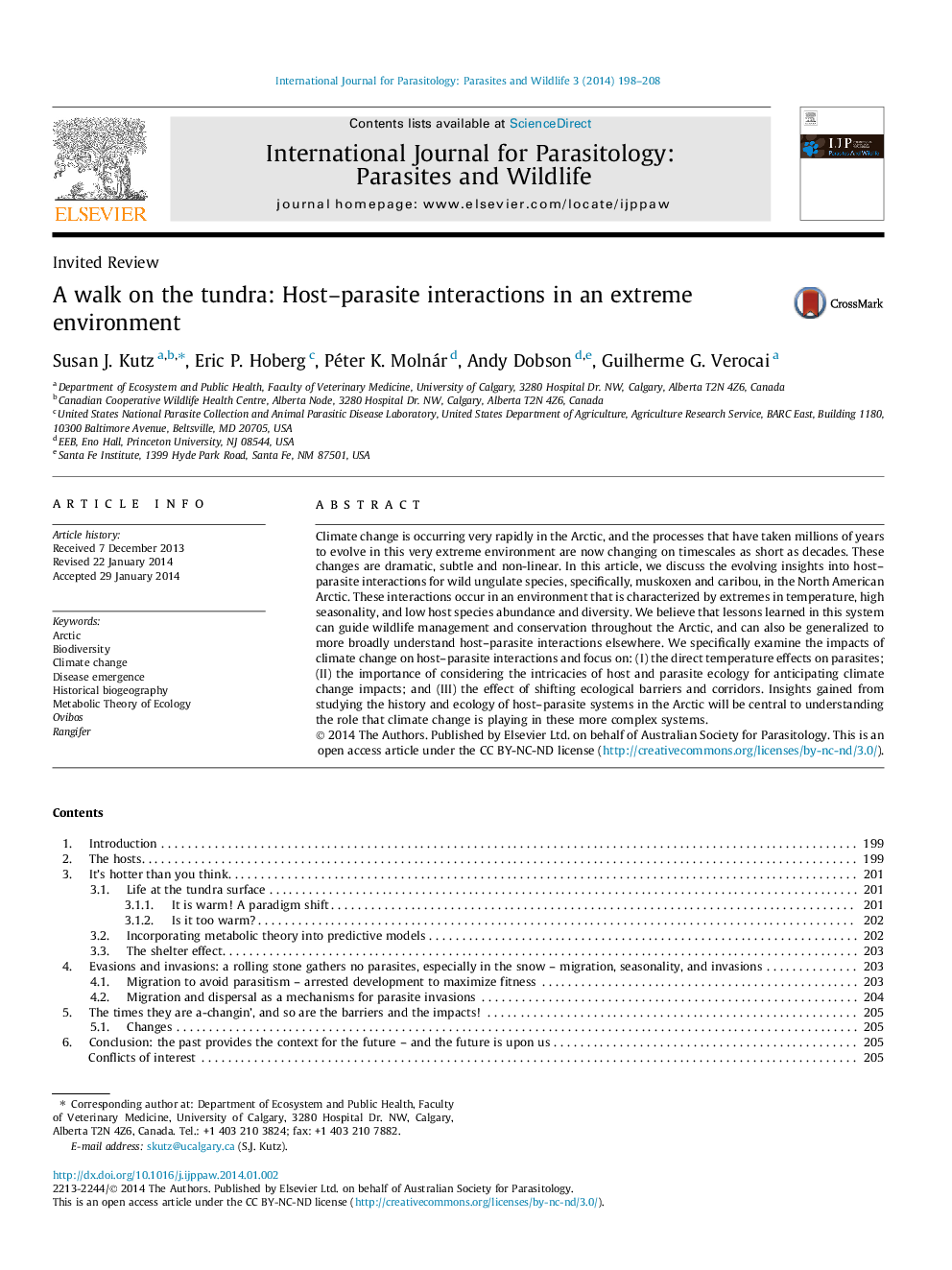| Article ID | Journal | Published Year | Pages | File Type |
|---|---|---|---|---|
| 2055329 | International Journal for Parasitology: Parasites and Wildlife | 2014 | 11 Pages |
•Climate change is altering host–parasite interactions in the Arctic.•Changing ecological barriers reflect climate warming.•Metabolic Theory of Ecology advances understanding of host–parasite interactions.•Diversity emerges from host/parasite biogeographic/ecologic history.•Insights gained from the Arctic apply to more complex systems.
Climate change is occurring very rapidly in the Arctic, and the processes that have taken millions of years to evolve in this very extreme environment are now changing on timescales as short as decades. These changes are dramatic, subtle and non-linear. In this article, we discuss the evolving insights into host–parasite interactions for wild ungulate species, specifically, muskoxen and caribou, in the North American Arctic. These interactions occur in an environment that is characterized by extremes in temperature, high seasonality, and low host species abundance and diversity. We believe that lessons learned in this system can guide wildlife management and conservation throughout the Arctic, and can also be generalized to more broadly understand host–parasite interactions elsewhere. We specifically examine the impacts of climate change on host–parasite interactions and focus on: (I) the direct temperature effects on parasites; (II) the importance of considering the intricacies of host and parasite ecology for anticipating climate change impacts; and (III) the effect of shifting ecological barriers and corridors. Insights gained from studying the history and ecology of host–parasite systems in the Arctic will be central to understanding the role that climate change is playing in these more complex systems.
Graphical abstractFigure optionsDownload full-size imageDownload as PowerPoint slide
